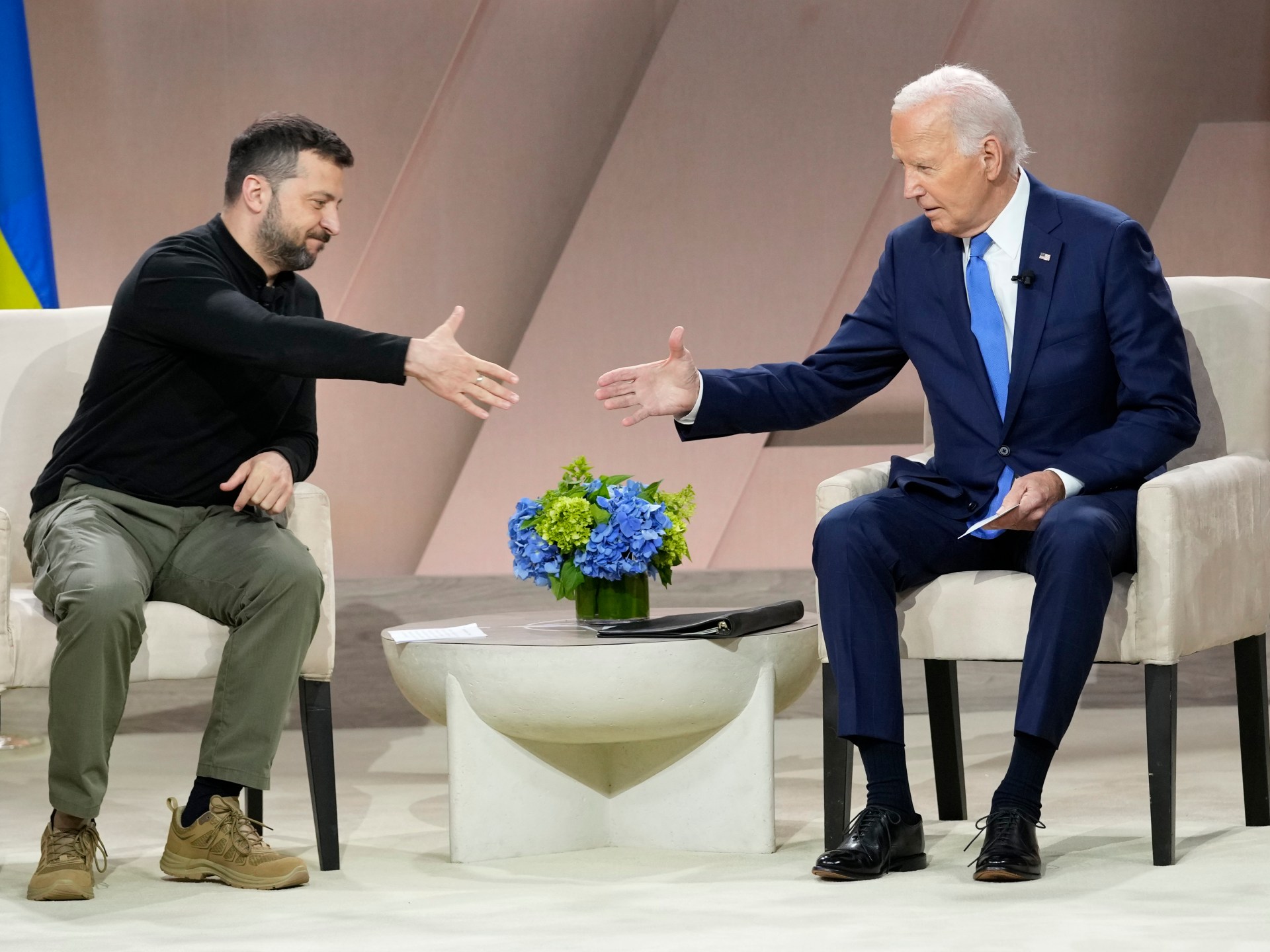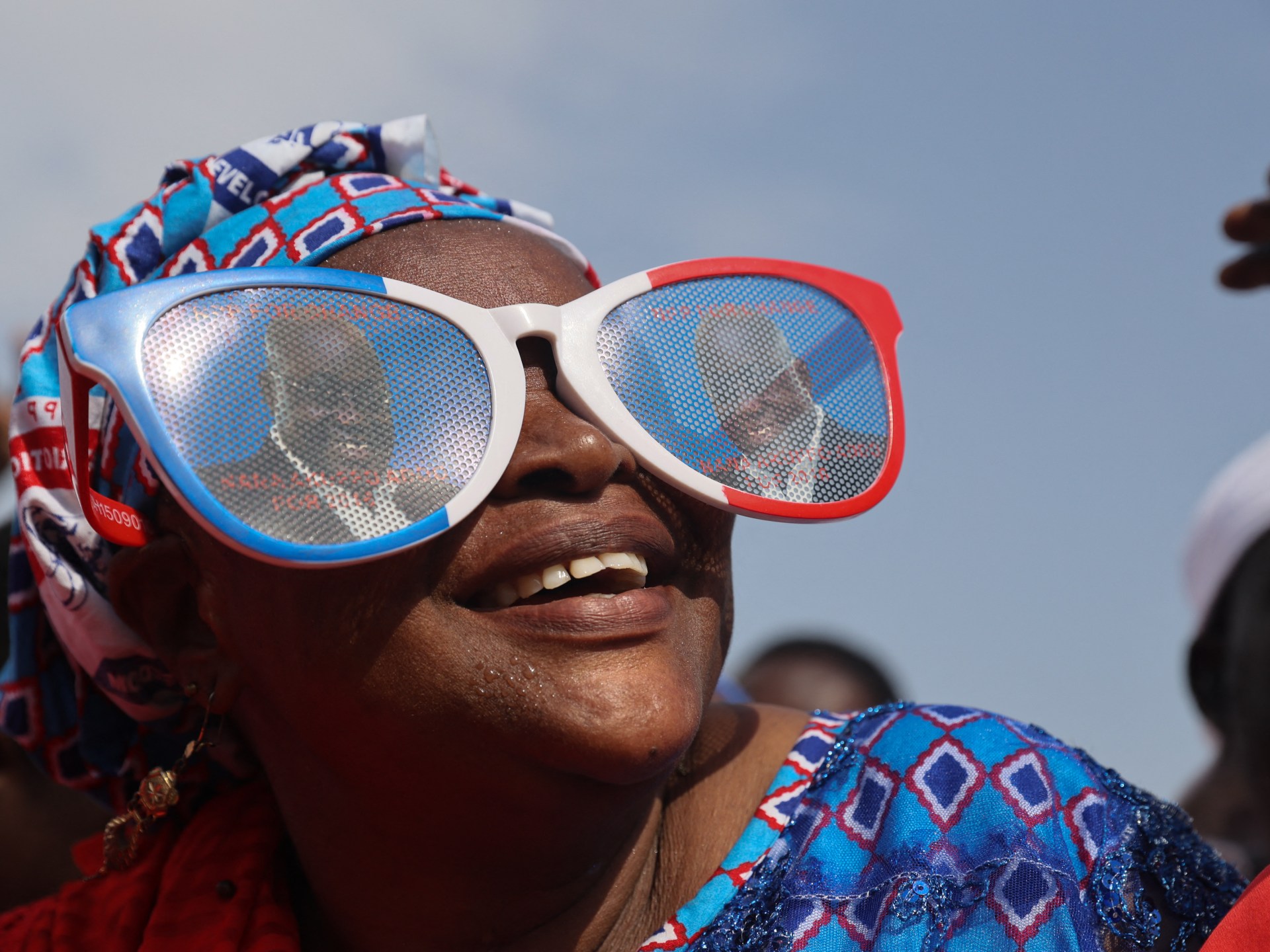

Voters in the West African nation of Ghana are heading to the polls on Saturday to decide the country’s next parliament and president in tense, tightly contested elections that come amid biting economic hardship and general frustration with outgoing President Nana Akufo-Addo’s government.
The presidential election pits current Vice President Mahamudu Bawumia of the ruling New Patriotic Party (NPP) against his main challenger, former President John Dramani Mahama of the opposition National Democratic Congress (NDC).
Bawumia and Mahama are both from the historically disadvantaged northern part of the country and have rallied hard to appeal to their support bases. Their approaches to the economy – Ghana’s main issue at present – differ. While the NPP favours a private sector growth approach, the NDC wants to implement more government intervention.
“These elections are unique because the north will likely determine the winner for the first time,” analyst Emmanuel Yeboah of the Ghana Center for Democratic Development (CDD) told Al Jazeera.
Advertisement
One of West Africa’s most prosperous and stable economies, Ghana is known for its largely peaceful transfers of power and its overall security in a region where armed groups hold sway.
With 34 million people, it is the second-most populous country in the region. The southern Akan group (46 percent) is the largest ethnic group and most Ghanaians (71 percent) are Christians. Accra is the capital city and the currency is the cedi.
Here is what you need to know about the vote:

How does voting work in Ghana?
- Ghanaians 18 and above are eligible. Some 18.8 million people are registered to vote in the ninth general elections since multiparty voting was reintroduced in 1992, following years of military rule. Turnout, on average, has been about 70 percent in previous elections.
- Voters will select representatives for 276 parliamentary seats representing all constituencies.
- Voters will assemble at voting stations nationwide to receive their ballot papers from 7am West Africa Time (06:00 GMT).
- Of the 12 candidates vying for the top job of president, there are two favourites: the candidates for the ruling NPP and opposition NDC parties.
- The candidate who wins more than half of votes cast wins the election. In the event of no overall majority, a run-off vote between the two with the most votes will take place, likely a week later.
- Results of the election are expected by Monday, December 10.
Advertisement
Who are the main candidates for president?
The Electoral Commission of Ghana has approved 12 presidential candidates, but it is widely accepted that the presidential election is a two-horse race between the established NPP and the opposition NDC.
Presidential power has shifted between the two main parties in close elections since 1992. Neither party, however, has managed to “break the eight” or win three consecutive presidential terms. Presidential terms are for four years and no individual may serve more than two terms.

Mahamudu Bawumia
The 61-year-old Oxford graduate and former central bank deputy represents the ruling NPP and is a Muslim from the historically disadvantaged north of the country. He is currently vice president of Ghana.
He was not a popular pick when he first campaigned to be President Akufo-Addo’s deputy in 2016, as he had not held a political post before.
As a key player in the presidential economic management team, Bawumia has been blamed by the opposition for the country’s financial woes. In 2022, Ghana defaulted on its sovereign debt for the first time, pushing inflation to unprecedented levels.
As a result, soaring food prices, a lack of jobs for young Ghanaians and other issues have damaged support for the NPP in general.
Throughout his campaign for the presidential election, which ended on Thursday, Bawumia has blamed external factors like COVID-19 for these economic problems. His team has also emphasised two of the government’s biggest wins: free education for senior secondary students since 2017 and a “one-district, one factory” plan which has seen the government support the building of factories in many of the 261 administrative districts, such as the Twyford Ceramics factory which opened in the Shama District of the Western Region in 2021.
Advertisement
That strategy seems to be working, analysts say. “Some three months ago, many people actually thought it was a clear win for Mahama,” Yeboah of the CDD said. “Right now, it’s just too close to call.”
Still, Bawumia faces challenges, as many remain doubtful about the NPP government in general. In a country where tribe and religion tend to influence how people vote, the fact that Bawumia is a northerner, a Muslim and a non-Akan could also work against him.
As the first NPP candidate not from the Twi-speaking Akan group, he was forced to run with Matthew Opoku Prempeh, a Christian Akan, as his deputy to appease the ruling party’s traditional home base.
If he wins, Bawumia will become Ghana’s first Muslim president. The NPP would also, for the first time, have won three consecutive terms in office.

John Dramani Mahama
Mahama, 66, of the opposition NDC party, ascended to the presidency in 2012, after President John Atta Mills died. His tenure until 2016 was marked by turbulence: drastic power cuts, locally called “dumsor”, earned him the nickname “Mr Dumsor”.
Government agencies battled allegations of corruption and Mahama was also accused of receiving bribes from a businessman in the form of a Ford four-wheel drive in 2012.
Advertisement
When Mahama lost his second bid for the presidency to Akufo-Addo in 2016, he became the first incumbent to miss out on a second term. In 2020, he stood for president again and lost to his rival.
However, the politician, who is also from the north and is Christian, has campaigned on promises of a swift economic recovery from NPP rule.
He appeals mostly to young people between the ages of 18 and 35, who make up 62 percent of the voting population, as well as to the NDC’s north and central region bases.
Alan Kyerematen
A former minister and ex-member of the NPP, Kyerematen, 69, exited the party ahead of chaotic and disputed primaries late in 2023.
As an independent candidate backed by his Movement for Change party, which he set up in September 2023, Kyeremetan is not expected to pose much of a challenge to the NPP or NDC parties. However, analysts warn that he could steal NPP votes in its Akan strongholds, particularly in central Kumasi city, where the politician is from.
Nana Kwame Bediako
The real estate business mogul, 44, is running as an independent candidate, backed by the New Force movement, which targets young people.
Before he ventured into politics, Bediako was widely known as a wealthy man with a penchant for flair, including for once keeping pet tigers in his home.
The announcement of his decision to stand as a presidential candidate came weeks after billboards in Accra showed a mystery, masked candidate, and piqued young people’s interest. Bediako has promised to end the country’s “brain drain” by creating more jobs.
Advertisement
What are the key issues?
Ghana is in the throes of its worst economic crisis in a generation, despite being a leading producer of cocoa, gold and oil. Food prices are soaring and the cedi has plunged in value against the dollar.
The height of the country’s economic crisis was in 2022, when Ghana failed to make repayments on its external debts – amounting to $30bn – for the first time. Inflation had risen above 50 percent by the end of that year and the country was unable to produce funding for the following year’s budget.
Power blackouts are frequent as the Electricity Company of Ghana (ECG) owes $1.6bn to private power suppliers. In October 2024, one supplier, Sunon Asogli, suspended operations because of the debts.
President Akufo-Addo’s government was forced to seek a $3bn International Monetary Fund (IMF) loan package to support the economy, even though he had previously promised never to do this. This week, the IMF released the third tranche of the loan, worth $360m. The bank released $600m in July 2023 and January 2024. Inflation has slowed to 20 percent since 2020, but the cost of living remains onerous for many.
The two main parties differ in their approach to fixing the economy. While the ruling NPP favours private sector-led growth to boost the economy, the NDC wants to implement government-led interventionist policies such as large, public infrastructure projects in agriculture and manufacturing.
Unemployment
Unemployment has hit 14.7 percent in Ghana, according to government data from 2023. The lack of jobs is prompting young Ghanaians, particularly healthcare workers, to move away from Ghana in what has been termed a “brain drain”.
Bawumia’s campaign blames other factors for this: COVID-19, the Russia-Ukraine war and even problems created during Mahama’s last presidency. The vice president has promised new economic strategies: cancelling some taxes, such as import duties on mobile phones, for example.
Advertisement
NDC’s Mahama, for his part, has made the economy a cornerstone of his campaign, promising to cut the number of ministers to reduce government spending. He has called Akufo-Addo and Bawumia’s IMF deal “reckless”.

Corruption
This week, a Ghanaian news site, The Fourth Estate, revealed that the country’s National Service Authority, which recruits graduates to public offices, was paying salaries to thousands of “ghost workers”, although this claim has not been officially investigated.
Ghana ranked 70th out of 180 countries on the Corruption Perceptions Index in 2023, indicating high levels of political corruption. Mahama of the NDC has promised an “Operation Return all Loot” and to target corrupt officials.

Illegal mining and pollution
Known as “galamsey”, illegal gold mining is causing widespread devastation to water bodies that millions depend on for consumption and agriculture in Ghana.
Unemployment and higher gold prices this year have intensified galamsey, which involves digging up the topsoil and using water and chemicals including mercury and cyanide to wash it off and uncover pieces of gold. The soil flows back into water bodies such as the River Pra, which is now a polluted murky brown colour as a result. Farmers say the pollution has crippled cocoa harvests.
Advertisement
In August, Ghana’s water authority said it had to cut off 75 percent of clean water supplies to communities, saying it could not remove the harmful chemicals and that it was unsafe to drink. The matter has prompted protests and accusations that the government is ineffective in stopping it. Some have called it an “ecocide”.
Illegal mining used to be mostly confined to the south of the country but has also spread to the north, Ewurabena Yanyi-Akofur, country head of the non-governmental organization WaterAid Ghana, told Al Jazeera.
Research by WaterAid shows that the communities where illegal mining is heaviest also suffer health issues such as chest pain, related to their work and the polluted water. However, when asked, illegal miners say they have no choice because of the lack of jobs.
“You have to feel sympathy for their situation. Unemployment rates are high, and climate change has resulted in less reliable rainfall that’s affecting farming,” Yanyi-Akofur added.
By 2030, if things don’t change, WaterAid predicts Ghana might run out of potable water altogether, and would be forced to import water from its neighbours.
Could there be outbreaks of violence during these elections?
While elections in Ghana have been largely peaceful in the past, pockets of violence could be likely this time, experts say.
“Some hotspots we are watching are Accra and the Central Region, which are swing regions that any of the candidates could win,” analyst Yeboah of Ghana CDD said.
Parts of the Northern Region, which is now tensely split between Bawumia and Mahama, could also witness some violence, he said.
Advertisement
Related News
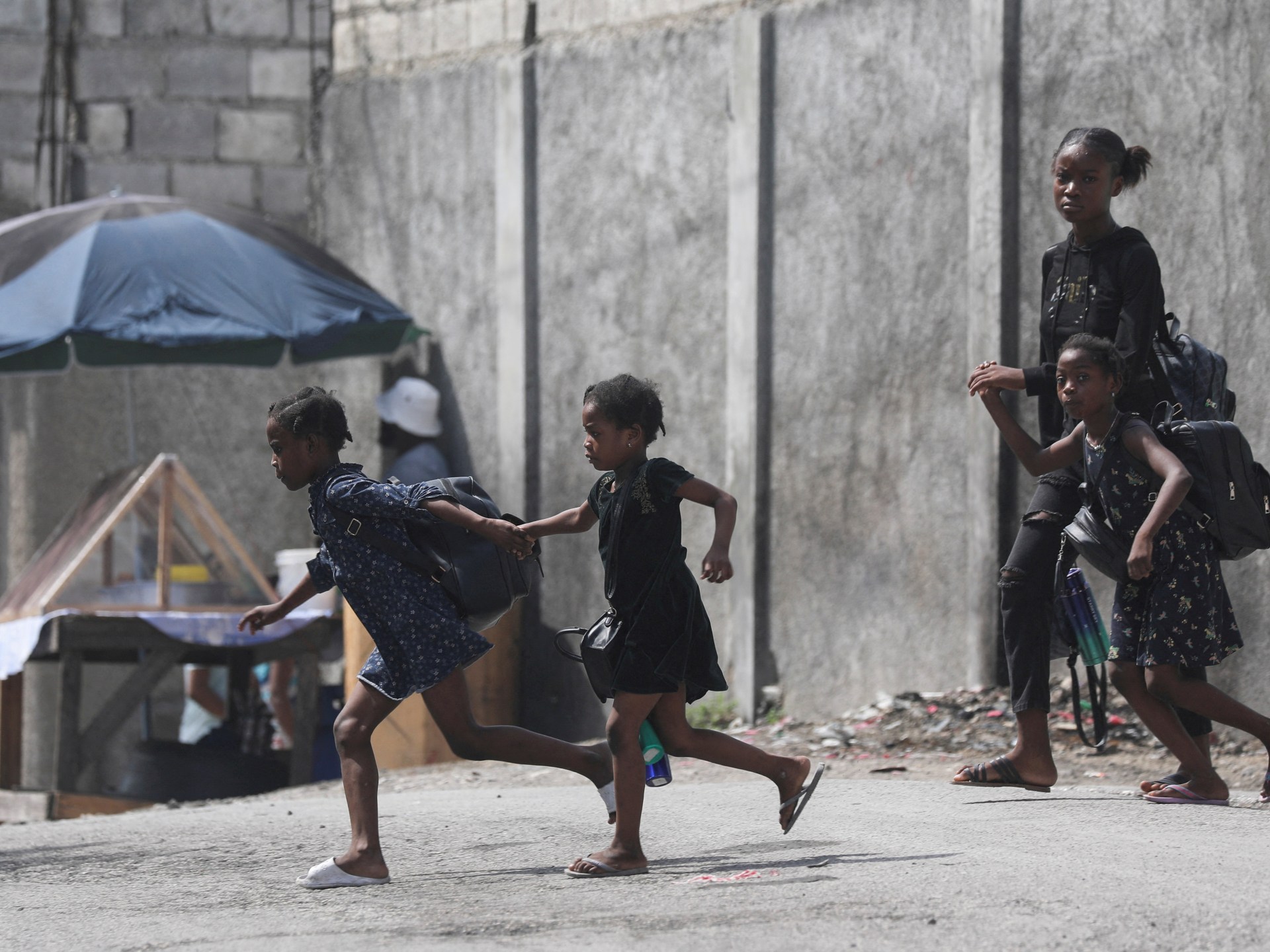
Haiti’s children ‘dragged into hell’ as gang violence rages
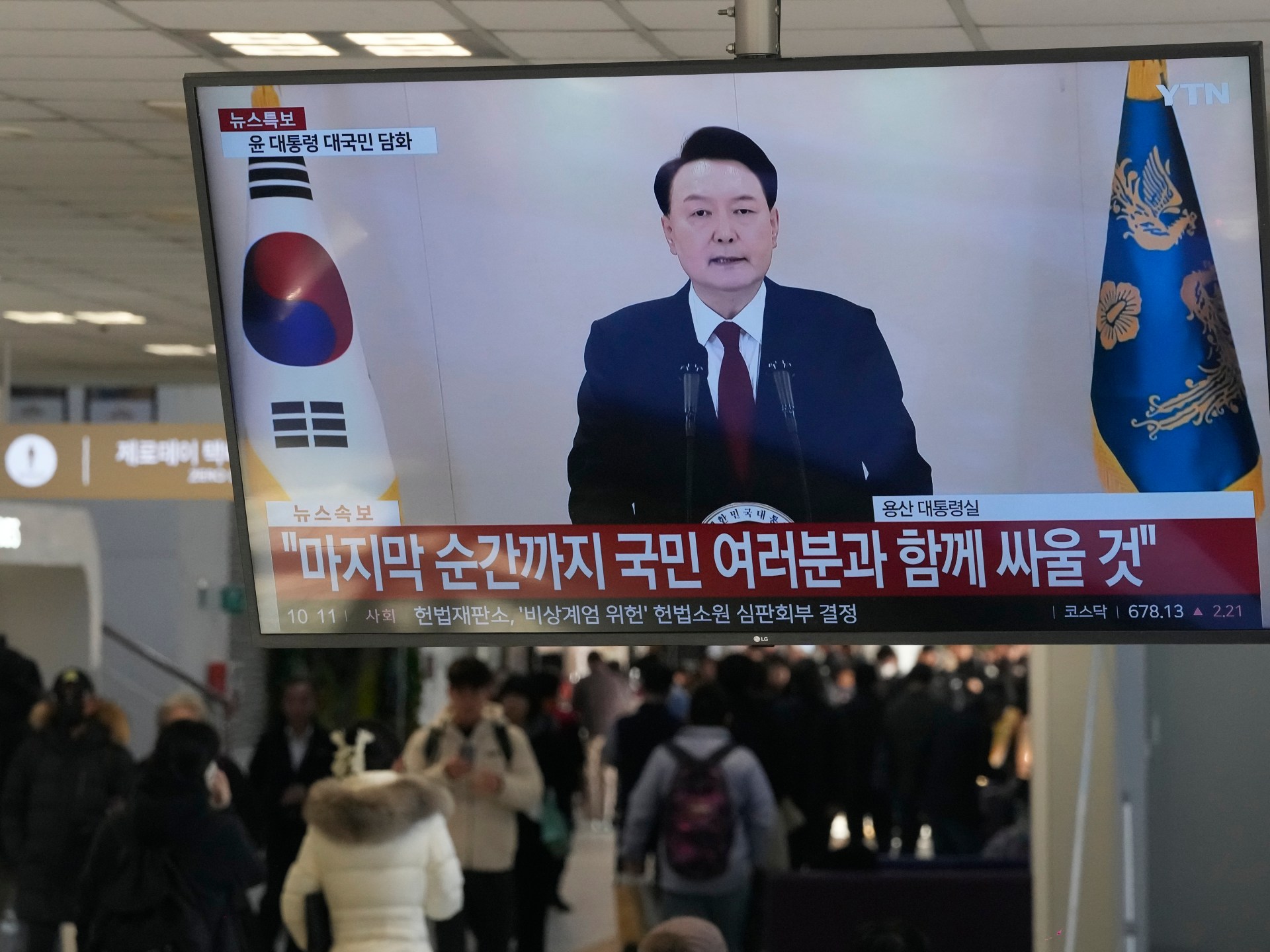
South Korea’s Yoon vows to ‘fight to the end’ as leadership hangs in limbo
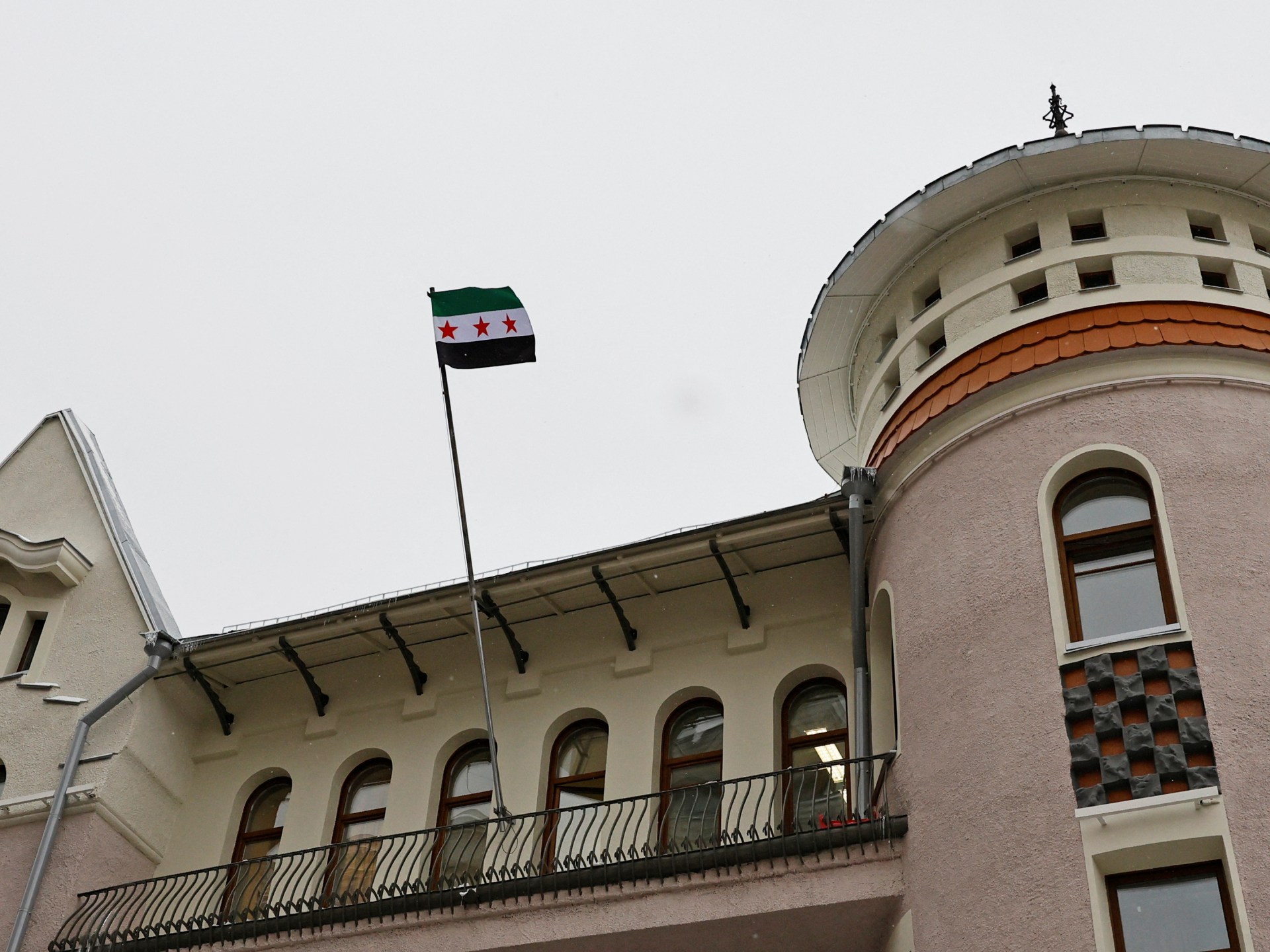
Photos: Syrian opposition flag raised at the embassy in Moscow, Russia
